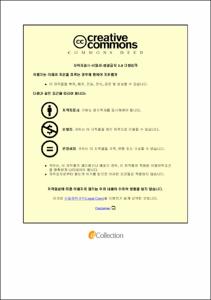A COMPARATIVE ANALYSIS OF WH-WORDS IN ENGLISH AND UZBEK
- Alternative Title
- 영어와 우즈벡어의 wh-어휘 비교분석
- Abstract
- 초록
본 논문은 영어와 우즈벡어, 두 다른 언어 속 wh- 단어들을 비교함으로써 보편성과 다양성의 개념을 논의하고자 한다. 필자는 의미론적 통사적 특징뿐만 아니라 형태학적 단위에도 따라 wh-단어에 많은 동일구조와 이형태(異形態)적 특징이 있다는 것을 발견하였다. 비록 언어들이 같은 어근의 단어, 일반적인 형태소, 또는 의문어를 가지지 않는 것과 같이 그 재료들이 다를 수 있지만, 그들의 구조(즉, 요소들과 그들의 기능 사이의 관계)는 유사할 수 있다. 영어는 게르만어족의 인도유럽어족에서 온 분석적인 언어인 반면, 우즈벡어는 위구르차가타이 남동부의 튀르크어족에서 온 언어이다. 그래서 이 논문에서 분석된 단어들의 개념에는 유사점과 차이점이 모두 있다.
두 언어의 wh- 단어들을 비교한 결과 우즈벡어는 영어에서 찾아볼 수 없는 특별한 특징들이 있음에도 불구하고 일부 언어의 공통점으로 영어의 틀도 설명할 수 있는 것으로 알 수 있었다. 본 논문은 영어와 우즈벡어로 된 질문적 해석을 위한 /무엇/어디/누가/왜/언제의 상태를 분석하며, 여기에는 구문적 표현과 실용적 관점의 특정 상호 작용에서 구성 질문을 도출하는 것이 포함된다. 영어와 우즈벡어의 예시는 모두 형태론적, 통사적, 의미론적 용법에서 의문대명사로 분류된다. 그럼에도 불구하고 두 언어를 분석하는 동안 소위 두 언어에서 의문 대명사의 형태학적 특성에 대한 많은 변형을 쉽게 인지할 수 있다.
본 논문에서는 wh- 단어가 의문 형태뿐만 감탄형, 서술형 조항의 구성 요소도 형성할 수 있다는 것도 분석하였다. 이를 바탕으로 감탄사와 미사여구는 대답을 요구하지 않는 누가/무엇/어디와 같은 wh-단어의 특성을 사용하였다.
Abstract
The current thesis discusses the concept of universality and diversity by comparing the wh-words in two different languages, English and Uzbek. I found that there are many isomorphic and allomorphic features in the wh-words according to not only the semantic-syntactic features but also the morphological unit. Although languages may differ in their materials like having no words of the same root, common morphemes, or question words, their structure (i.e. relations between the elements and their functions may be similar. English is from Indo-European Family in Germanic showing an analytical language, whereas Uzbek comes from a Turkic family in Southeastern, Uighur-Chagatai considering an agglutinative language. So, on the concept of wh-words, they have both similarities and differences, which have been analyzed in this thesis.
Having compared two languages on the wh-words, it is known that in spite of the fact that the Uzbek language has special uncials that cannot be found in English, it can also account for the frame of the English language as it has some language universals. This thesis analyzes the status of wh-words who/what/where/which/why/when for the interrogative interpretations in English and Uzbek, including the derivation of constituent questions from a specific interplay of syntactic representations with a pragmatic view. All given examples in English and Uzbek are classified in terms of the interrogative pronouns in morphological, syntactic, and semantic usage. Nevertheless, while analyzing both languages one can easily perceive many variations on the morphologic characteristics of interrogative pronouns in both so-called languages.
In the thesis, it is also analyzed that wh-words can form a constitutive part not only of interrogative but also of the clauses of exclamative and declarative. Based on this, exclamation and rhetoric usages the characteristic of wh-words, who/what/where does not require an answer.
- Issued Date
- 2022
- Awarded Date
- 2022. 2
- Type
- Dissertation
- Keyword
- Linguistics
- Publisher
- 부경대학교
- Affiliation
- Pukyong National university, Graduate school
- Department
- 대학원 영어영문학과
- Advisor
- Soonhyuck Park
- Table Of Contents
- I. Introduction 1
1.1 The purpose of the thesis 1
1.2 Organization 3
II. Theoretical Background 4
2.1 Types of Wh-questions 4
2.2 Wh-movement 7
2.2.1 Wh-in-situ 10
2.2.2 Medial wh-words 11
III. Wh-words in English and Uzbek 14
3.1 Grammatical features of Wh-words 14
3.2 Isomorphic and allomorphic features of Wh-words 25
3.3 Reduplication of Wh-words in Uzbek 34
IV. Wh-words as non-interrogative elements 37
4.1 Wh-words in exclamation usage 37
4.2 Wh-words Rhetorical question (interrogative) 37
4.3 The Ki particle 40
V. Conclusion 42
- Degree
- Master
- Files in This Item:
-
-
Download
 A COMPARATIVE ANALYSIS OF WH-WORDS IN ENGLISH AND UZBEK.pdf
기타 데이터 / 476.57 kB / Adobe PDF
A COMPARATIVE ANALYSIS OF WH-WORDS IN ENGLISH AND UZBEK.pdf
기타 데이터 / 476.57 kB / Adobe PDF
-
Items in Repository are protected by copyright, with all rights reserved, unless otherwise indicated.